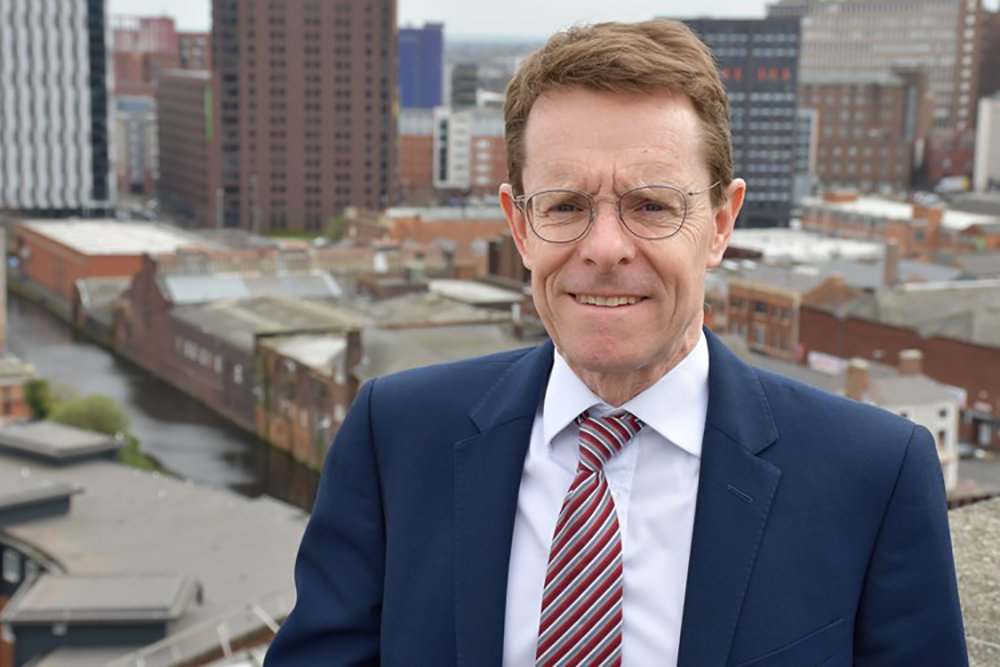
The West Midlands Combined Authority is calling on the government to award £11 million to support the vital work of grassroots groups who have been praised for their work throughout the coronavirus pandemic.
It follows the launch of a new report which highlights how community, voluntary and faith groups in the West Midlands stepped up to support communities and people in need during the first Covid lockdown.
The Authority commissioned the report to find out more about the innovative and enterprising ways these groups acted in response to the pandemic earlier last year, and inform possible initiatives in the future.
The document, Innovation and Enterprise Across The Social Economy in Recovery from Covid-19, was launched at a roundtable meeting on Tuesday 19 January. The event was hosted by Andy Street, Mayor of the West Midlands, and welcomed a wide range of local representatives, as well as Danny Kruger MP, who completed a national review of community spirit during lockdown on behalf of the Prime Minister in September 2020. Mr Street said:
“During the first lockdown the West Midlands saw an incredible response from community, faith and other groups of volunteers. Without their contribution to the collective and urgent response to the crisis, the health and economic devastation would arguably have been far worse and the impact on public finances more severe.
“This new report not only sets out this phenomenal community response, but also what steps now need to be taken to continue this great work and harness the brilliance of voluntary groups and organisations. I am pleased I was able to present this report and the region’s case to Government, and I know Danny Kruger was left very impressed by the work going on in the West Midlands.”
The call for extra money is for a community resilience fund which is based on the principles of Danny Kruger’s report and was proposed in the WMCA’s comprehensive spending review submission. The £11 million would be used to support the voluntary, community, faith and social enterprise organisations to support the most vulnerable in communities. Danny Kruger MP said:
“The findings from my report to the Prime Minister were absolutely clear; community spirit has risen to the challenge of this pandemic and the response of individuals, voluntary groups and socially minded businesses, has been absolutely phenomenal.
"This report, commissioned by the Combined Authority, demonstrates how impressively local organisations have stepped forward in the West Midlands, and provides us with invaluable insights into how we can take that work forwards to create a new and better world.”
The report is based on research undertaken by the University of Wolverhampton, Coventry University and Birmingham Voluntary Sector Council. Their research of local voluntary and community groups during the first lockdown found that red tape and formality were suspended, existing partnerships and good relationships were strengthened, and new flexible, online ways of working were adopted.
The standout finding in the report is the rapid collaboration between community and voluntary organisations and local authorities and other public sector bodies. Interviews and case studies conducted by the report’s authors all highlight the speed with which the sector responded in a spirit of ‘getting things done’.
For example, very early on in the crisis, the mental health charity Birmingham Mind recognised that it needed to offer an alternative out of hours crisis service as face-to-face services were not possible. Within two days Birmingham Mind increased the hours of its phone hotline to 9am-11pm, seven days a week.
Shortly after the charity was approached by NHS 111 which needed help easing the huge amount of mental health calls they were receiving. Working in partnership with NHS 111 and two local NHS organisations calls were subsequently diverted to Birmingham Mind’s helpline.
However, many of the report’s case studies highlighted the digital divide and underlying inequalities that exist - hence the important role for the sector in speaking out. As a result, the report’s authors make several recommendations including a Regional Stabilisation Fund to support recovery and ensure the groups’ work can continue. Funding would support the WMCA working with the community and other organisations to share expertise and training opportunities, as well as developing volunteering schemes and working with the private sector to tackle inequalities and address the anticipated economic and social impact.










Comments
Add a comment